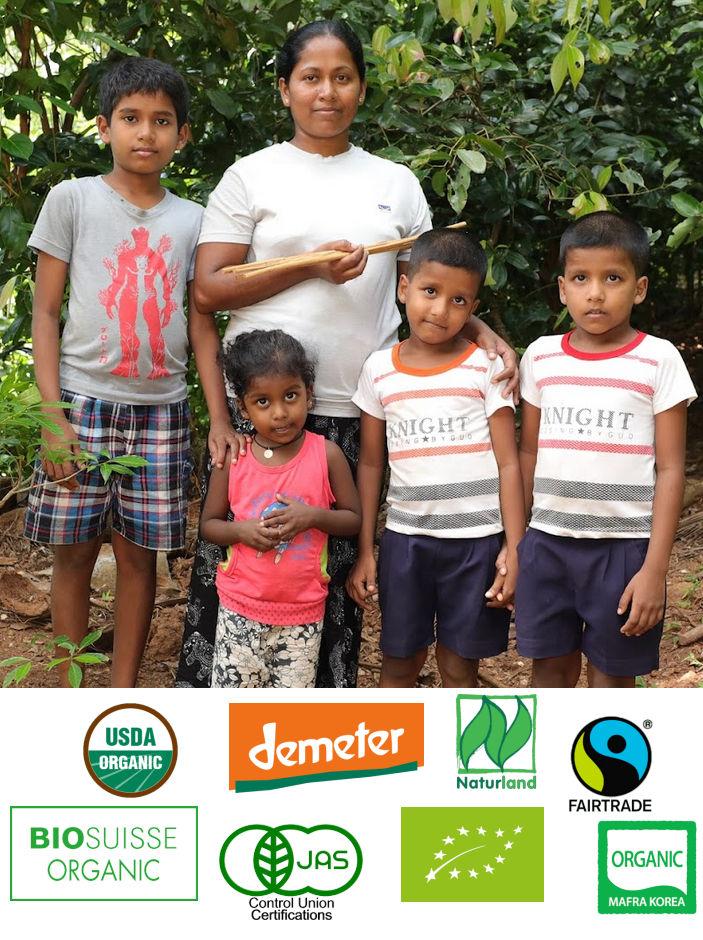Marginalized Organic Producers Association is one of the largest Fairtrade certified farmer associations in South Asia, established in 2010. Our organization comprises approximately 2500 Fairtrade certified farmers across various sectors including tea, coconut, spices, and herbs throughout the island. We are proud holders of multiple certifications such as Fairtrade, Fair for Life, Naturland, and Demeter, and were honored with the Best Small Farmer Group in Asia award in 2014. The Organization’s strategic aspirations are driven by a spirited team of around 08 employees, under the visionary leadership, guidance and direction of the Founder and President, Dr. Sarath Ranaweera.
Our supply Chain Enterprise is a well-established supplier of tea, coconuts, and spices. With a proven track record of annually supplying large quantities to buyers, we are committed to expanding our operations and increasing our market share. Our business model focuses on maintaining high-quality products and reliable delivery to meet the demands of our customers. As we move forward, our goal is to further strengthen our position in the market and explore opportunities for sustainable growth.
Supply Chain Enterprise specializes in the supply of tea, coconuts, and spices. Our annual supply quantities include 4,345 tons of tea, 7,666 tons of coconuts, and 17,666 tons of spices. We have built strong relationships with buyers and have gained a reputation for the consistent quality and reliability of our products.
The Marginalized Organic Producers Association has allocated a significant fund of Rs. 105 million towards the social, economic, and environmental development activities of our farmers in the past four years. Our organization strategy is based on sustainability, which aims to enhance long-term stakeholder value and covers ethical, social, cultural, economic, and environmental aspects.
Our Key Values
- Manufactured Capital: This refers to the physical assets of the organization, such as buildings, machinery, and equipment. In your case, Rs. 12 million worth of this type of capital suggests a significant investment in tangible infrastructure.
- Human Capital: This represents the skills, knowledge, and experience of the organization’s employees. You say your organization has high-skill employees, which is a valuable asset as it can contribute to innovation, productivity, and competitiveness.
- Social & Relationship Capital: This refers to the organization’s network of relationships with other individuals or entities. Strong partnerships with buyers and farmers can provide access to resources, markets, and support networks, contributing to the organization’s overall success.
- Visionary Leadership: This is the ability of the organization’s leaders to set a clear and inspiring vision for the future. Leaders with vision can motivate and guide employees, fostering a sense of purpose and direction.

